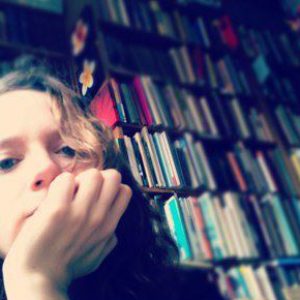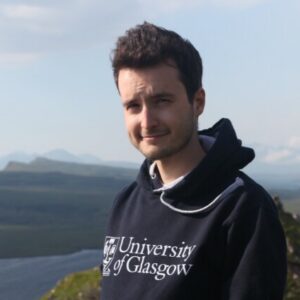Days Hours Minutes Seconds
How to Register
1. Book into Workshops
Take a look at the sessions below, click through to get the full details and fill in the form if you want to register
Once you have secured a place on all your chosen sessions, fill in the Summer School Attendee form (click here)
After you have secured your sessions and registered your attendance, you can now head over to the payment portal and purchase the relevant ticket (click here)
Registration is now closed
**Please note: we have had unprecedented high demand for accommodation this year. While we will try our best to accommodate those who make requests, please consider whether you may instead be able to travel from home on the first day, and/or travel home after the final session. Our Summer School sessions begin at 11am on Wednesday 5th June in order to facilitate a morning travel option.**
Registrations for Summer School have closed for this year. We hope to see you in 2025!
Register Now
This year, the SGSSS Summer School is coming to Dundee! The home of ‘jute, jam and journalism’ will host us on Wednesday 5 and Thursday 6 June for in-person sessions, and Monday 10 and Tuesday 11 June will bring an exciting online keynote alongside online learning events.
With a wide variety of interesting and useful workshops over four days across two weeks, plus opportunities to socialise, join a pub quiz and learn about social science research happening throughout Scotland, Summer School 2024 will be an exciting way to learn advanced skills, meet other PhD students, and be inspired by ideas and stories. Our in-person sessions will be held at the Dalhousie Building, University of Dundee.
There is no charge to attend Summer School, and registration is open to all social science postgraduate researchers at Scottish universities. Accommodation is included only for those who register in the first round – please note our expenses policy for any other reimbursement claims.
We look forward to welcoming you in June!
Register Now
All workshops
June 5
June 6
June 10
June 11
The course considers key social debates that flow from demographic change such as overpopulation, fertility decline, rural population sustainability and population ageing. You will learn about the demographic data and methods and theory that underpin such debates with hands-on opportunities to undertake analysis using real demographic data.
View Event
This training session, using a variety of data sources including interviews with Donald Trump, a US defender of the political right, and a speech from Jeremy Hunt, explores different ways of coding qualitative data.
View Event
This workshop focuses on the production of data via surveys, helping participants design survey questions in an inclusive, transparent and reflexive manner.
View Event
This workshop looks at the aftermath of a mass atrocity, a temporal moment when the killings are over and questions of justice and remembrance come to the fore. Through comparative studies of historical and contemporary mass atrocities, the workshop will create opportunities to interrogate notions of transitional justice and impunity.
View Event
This one-day course will outline the fundamental concepts and approaches for estimating trajectories of change for social science phenomena, and includes practical examples and exercises using R and Stata.
View Event
This workshop is aimed at people who are considering and/or actively designing a project that compares case studies. It is cross-disciplinary across the social sciences.
View Event
The workshop will teach the art of spotting a natural experiment and undertaking robust analysis to provide evidence for causal associations between social variables. You’ll be introduced to the statistical models that are used to analyse natural experiments and have hands on opportunity to fit a difference in difference model and an interrupted time series model.
View Event
A good way to share your research (or teach it!) is to make an interactive game based around them. This session uses ‘Twine’, a free tool for telling interactive, non-linear stories and publishing them on the web, to both demonstrate how to make such a story, as well as teaching participants the basics of the tool so that they can make their own.
View Event
We will provide a beginner’s introduction to quantitative data visualisation using the statistical programming language R. We expect no prior knowledge of using R, this is meant for complete beginners, but more experienced users are welcome.
View Event
There is an unprecedented amount of information on the internet that could usefully be harvested in order to build social science research datasets. This half-day course will showcase suitable techniques for web scraping.
View Event
This workshop will consider how museums, galleries, and universities curate and exhibit their colonial acquisitions and ethnological collections. We will also discuss alternative archives that use 3D imaging, storyworlding, and architectural technologies to rethink conventional archives and bring to the surface marginalised and concealed histories.
View Event
After an exciting day of learning new things and meeting your fellow PhD students, why not come and win some prizes at our legendary SGSSS Summer School Quiz Night?
View Event
This session will include a range of activities to support networking within your challenge pathway. There will also be opportunities to make connections across PhD projects in terms of research questions, methods, literature, approaches to making broader impact and more!
View Event
Many theoretical concepts in the social sciences cannot be easily observed directly. This workshop will introduce latent class analysis, and you will learn how to undertake and interpret analyses using this method.
View Event
This workshop aims to highlight how doctoral scholars can harness the power of the Hidden Curriculum as they plan their personal journeys of growth & development not only for a successful, meaningful & timely PhD completion, but also in preparing for a post-PhD career.
View Event
Drawing on similar events run in the past and published work, I will consider strategies to safeguard yourself as a key component of researching ethically. We will consider and discuss what a sustainable workload looks like? and just as important, how can we achieve this in institutions that seem to be determined to push us to burnout.
View Event
In this short course, we will introduce the main concepts and theoretical issues around multilevel modelling. We will gain experience fitting this type of models with real-world multilevel data from the UK Data Service, using R and RStudio, but we will also discuss alternative software packages.
View Event
This session will explore the ethical and methodological considerations for research with young people, especially those who might be considered ‘vulnerable’. Workshop attendees will have the opportunity to reflect on how these topics might apply to their own research.
View Event
This course is aimed at those who have minimal experience either with qualitative research or in using the software Nvivo. It is also suitable for those who have used Nvivo before but would like a refresher.
View Event
This workshop aims to encourage deeper introspection into the doctoral experience among those whose country of origin differs from where they have chosen to pursue a PhD.
View Event
This workshop will explain why complex samples are used, the implications of complex samples for statistical data analysis, and approaches to analysing complex samples data. Whilst this workshop is primarily focussed on the analysis of social survey data resources, the principles can be more widely applied to other forms of made and found data.
View Event
The call for decolonisation within the academy has been intensifying in recent years. What does this mean for our research methodologies? This workshop opens a dialogue on what decolonising research may mean.
View Event
This workshop aims to empower students with the knowledge and skills to explore diverse career and research opportunities beyond traditional academic settings.
View Event
This guided lab session explores the analytical tools within NVivo for organising, navigating, and further developing your qualitative analysis.
View Event
This session is intended to be an introductory guide for students who have never engaged in qualitative research before, or have a small amount of qualitative experience that they would like to build on. No prior learning is required.
View Event
The aim of this workshop is to set theoretical and analytical foundations and overview in social network analysis by using of various network-related packages in R such as igraph, satnet, migraph, netsg, etc.
View Event
This workshop will explain why complex samples are used, the implications of complex samples for statistical data analysis, and approaches to analysing complex samples data.
View Event
This workshop will work through points for consideration when generating data visualisations. Examples will be presented using a combination or R and Stata output and code.
View Event
This workshop guides participants through the current UK data context, the risks and benefits data representation has for LGBTI+ people and show how reflexivity, transparency and consent can be centred in our survey design processes.
View Event
This session will introduce students to the ideas behind research integrity. The session will be divided into two parts a) what is good research? and b) what is bad research.
View Event
This session is intended for anyone who might be considering the use of focus groups as part of their research project. It will introduce and consider the use of focus group and reading group as a distinctive method of qualitative research.
View Event
This workshop aims to highlight how doctoral scholars can harness the power of the Hidden Curriculum as they plan their personal journeys of growth & development not only for a successful, meaningful & timely PhD completion, but also in preparing for a post-PhD career.
View Event
In this session, you will learn what AI technologies are, how they work, and how they are developed. We will then cover current research strands in responsible AI to make AI system fair, accountable, and transparent.
View Event
This workshop will aim to provide foundations in network theories and methods applied to studying relationships between variables or constructs.
View Event
This workshop aims to encourage deeper introspection into the doctoral experience among those whose country of origin differs from where they have chosen to pursue a PhD.
View Event
In this session, we’ll navigate the intricate process of crafting your inaugural journal article, offering insights and practical tips to ensure your first journal article is a confident stride into the academic world.
View Event
Professor Gerry McCartney of the University of Glasgow will give our Summer School 2024 Keynote online with the title “Social Murder In The UK”.
View Event
Members
All Members
active
popular
newest

Katherine Stephen

Rachel Allen

Alexander Vaniev

Philippa Costello

Dasha Narog

Sorry, no members were found.

Mohamed Abdulkadir Mohamed

Phil McAleer

Calum Paterson

Solomon Sekyi

Demi Elemo
![]()
![]()
![]()
![]()
![]()
![]()
![]()
![]()
![]()
![]()
